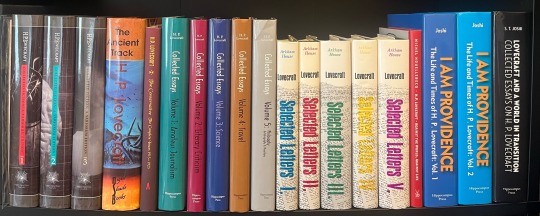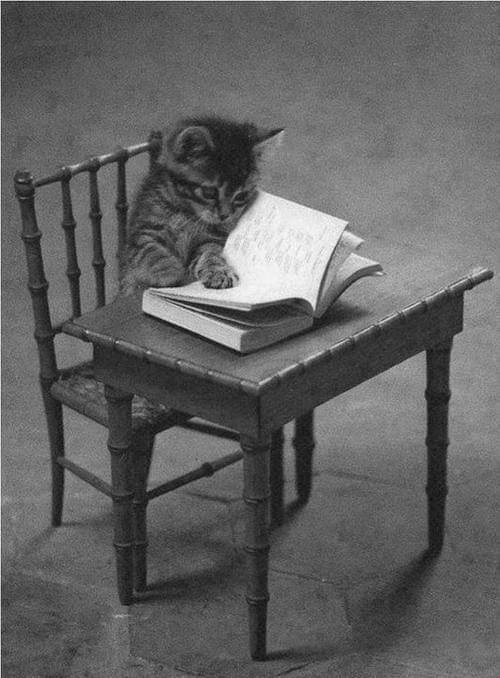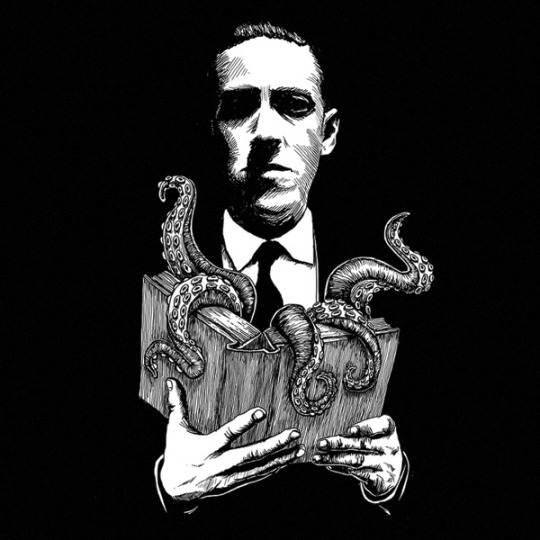#Houellebecq
Explore tagged Tumblr posts
Text
"not only do people torture one another, they torture one another with a complete absence of originality"
-michel houellebecq
#michel houellebecq#houellebecq#text post#thoughts#quotes#book quote#philosophy#philosophy quotes#literature#literary quotes#french literature
11 notes
·
View notes
Text
"Jamais je n'oublierais son corps, sa peau ni son visage, et jamais je n'avais non plus ressenti avec autant d'évidence que les relations humaines naissent, évoluent et meurent de manière parfaitement déterministe, aussi inéluctable que les mouvements d'un système planétaire, et qu'il est absurde et vain d'espérer, si peu que ce soit, en modifier le cours."
– La Possibilité d'une Île
10 notes
·
View notes
Text
youtube
7 notes
·
View notes
Text

5 notes
·
View notes
Text

I🤍MONEY
#michel houellebecq#corporate#9 to 5#grey#gray#dimidedikov#bulgaria#thought daughter#houellebecq#capitalism#platform
2 notes
·
View notes
Text

The Elementary Particles
Michel Houellebecq
3 notes
·
View notes
Text

“The surface of the planet today is covered in a chain-linked mesh of associations that join together to form a man-made network of irregular density.
Through this network, society's lifeblood circulates. The transport of people, of merchandise, of commodities; multiple transactions, sales orders, purchase orders, bits of information, all pass each other by; there are also other, more strictly intellectual or affective exchanges that occur. This incessant flux bewilders humanity, engrossed as it tends to be by the cadaverous leaps and bounds of its own activities.
But in a few spots where the network's links are weakly woven, strange entities may allow a seeker, one who "thirsts for knowledge," to discern their existence. In every place where human activity is interrupted, where there is a blank on the map, these ancient gods crouch, huddled, waiting to take back their rightful place.
As in the terrifying interior Arabian desert, the Rub-al-Khalid, from whence a Mohammedan poet named Abdul Al-Hazred was returning around the year 731 after ten years of utter solitude. Having grown indifferent to the practices of Islam, he devoted the year that followed to writing an impious and blasphemous book, the repugnant Necronomicon (several copies of which escaped the pyre and traversed the ages) before being devoured by invisible monsters in broad daylight at the Damascus market square.
As in the unexplored plains of Northern Tibet, where degenerate Tcho-Tchos lope around in adoration of unnameable deities they qualify as "the Great Old Ones."
And as in the huge expanses of the South Pacific, where the paradoxical trails of unexpected volcanic convulsions at times produce utterly inhuman sculptures and geometry which the abject and depraved natives of the Tuamotu archipelago worship, crawling forward on their upper bodies.
At the intersections of these channels of communication, man has erected giant, ugly metropolises where each person, isolated in an anonymous apartment, in a building identical to the others, believes absolutely that he is the center of the world and the measure of all things. But beneath the warrens of these burrowing insects, very ancient and very powerful creatures are slowly awakening from their slumber. During the Carboniferous age, during the Triassic and the Permian ages, they were here already; they have heard the roars of the very first mammals and will know the howls of agony of the very last.
Howard Phillips Lovecraft was not a theoretician. Jacques Bergier clearly understood that, by introducing materialism into the heart of fear and fantasy, HPL created a new genre. It is no longer a question of believing or not believing, as in certain vampire or werewolf tales; there is no possible reinterpretation, there is no escape. There exists no horror less psychological, less debatable.” - Michel Houellebecq, ‘H. P. Lovecraft: Against the World, Against Life’ (1991) [p. 57 - 59]
13 notes
·
View notes
Text

Vivere senza leggere è pericoloso,
ci si deve accontentare della vita,
e questo comporta notevoli rischi.
M. Houellebecq
3 notes
·
View notes
Text
I was in a bad mood, and I poured myself a big glass of vodka without waiting for him while devouring slices of artisanal black pudding; you really can’t do anything about people’s lives, I said to myself, neither friendship nor compassion nor the intelligence of situations is of any use: people manufacture the mechanism of their own misfortune, they wind it right up and the mechanism goes on turning, ineluctably, with the odd mistake, a few errors when there’s sickness in the mix, but it goes on turning to the end, to the final second.
Serotonin M. Houellebecq
14 notes
·
View notes
Text
need to read houellebecq soon. im thinking serotonin, submission or whatever.
4 notes
·
View notes
Text
Houellebecq's success is symptomatic of civilisational self-hatred. He tells us that we are weak, and pathetic, and corrupt, and we applaud him for it, without becoming any stronger, nobler or more honest with ourselves.
Letter writer to the Critic magazine
2 notes
·
View notes
Text

«La publicidad es la última tentativa hasta la fecha. Aunque su objetivo es suscitar, provocar, ser el deseo, sus métodos son, en el fondo, bastante semejantes a los que caracterizaban a la antigua moral. La publicidad instaura un superyó duro y terrorífico, mucho más implacable que cualquier otro imperativo antes inventado, que se pega a la piel del individuo y le repite sin parar: “Tienes que desear. Tienes que ser deseable. Tienes que participar en la competición, en la lucha, en la vida del mundo. Si te detienes, dejas de existir. Si te quedas atrás, estás muerto.” Al negar cualquier noción de eternidad, al definirse a sí misma como proceso de renovación permanente, la publicidad intenta hacer que el sujeto se volatilice, se transforme en fantasma obediente del devenir. Y se supone que esta participación epidérmica, superficial, en la vida del mundo, tiene que ocupar el lugar del deseo de ser.»
Michel Houellebecq: El mundo como supermercado. Editorial Anagrama, págs. 68-69. Barcelona, 2005
TGO
@bocadosdefilosofia
@dies-irae-1
#michel houellebecq#houellebecq#el mundo como supermercado#aproximaciones al desarraigo#el mundo como supermercado y como burla#publidad#muerte de dios#antigua moral#superyo#imperativo#deseo#deseable#deseado#deseo de ser#eternidad#ser#devenir#sujeto#teo gómez otero
4 notes
·
View notes
Text

La bruma envolvía la montaña
Y yo estaba cerca del radiador,
La lluvia caía con dulzura
(Siento como me gana la náusea).
La tormenta iluminaba, invisible,
Un decorado de mundo exterior
En el que reinaba el hambre y el miedo,
Me hubiera gustado ser impasible.
Unos mendigos se deslizaban bajo las gotas
Como insectos hambrientos
Con las mandíbulas mal cerradas,
Los mendigos cubrían la carretera.
El día lentamente decrecía
En un azul-gris de mal sueño,
Ya no habría tregua jamás;
Lentamente, el día se iba.
Michel Houellebecq
#Houellebecq#abstractphotography arteabstracto abstractphoto abstractdesign bnwphotography experimentalphotography phototexturée digitalart
2 notes
·
View notes
Text


The Elementary Particles Michel Houellebecq
3 notes
·
View notes
Text

“Against the World, Against Life
More so today than ever before, Lovecraft would have been a misfit and a recluse. Born in 1890, he already appeared to his contemporaries, in the years of his youth, to be an obsolete reactionary. It's not hard to imagine what he would have thought of our society today. Since his death, it has not ceased evolving in a direction which could only have led him to hate it more. Mechanization and modernization have ineluctably destroyed the lifestyle he was attached to with his every fiber (it is not as if he harbored any delusions about humanity's ability to influence events; as he wrote in a letter, "Everything in modern existence is a direct & absolute corollary of the discoveries of applied steam power & of large-scale applications of electrical energy"). The ideals of liberty and of democracy that he so abhorred have spread all over the planet. The man who declared: "What we detest is simply change itself" could only have bristled at the degree to which the idea of progress has come to be an indisputable and almost unconscious credo. The reach of liberal capitalism has extended over minds; in step and hand in hand with it are mercantilism, publicity, the absurd and sneering cult of economic efficiency, the exclusive and immoderate appetite for material riches. Worse still, liberalism has spread from the domain of economics to the domain of sexuality. Every sentimental fiction has been eradicated. Purity, chastity, fidelity, and decency are ridiculous stigmas. The value of a human being today is measured in terms of his economic efficiency and his erotic potential — that is to say, in terms of the two things that Lovecraft most despised.
Horror writers are reactionaries in general simply because they are particularly, one might even say professionally, aware of the existence of Evil. It is somewhat curious that among Lovecraft's numerous disciples, none has been struck by this simple fact: the evolution of the modern world has made Lovecraftian phobias ever more present, ever more alive.
(…)
True, this is a treacherous path that only leads to narrow straits. Not because of censorship or litigation. Horror writers probably feel that marked hostility toward any form of freedom in the end breeds hostility to life itself. Lovecraft felt the same way, but he did not stop halfway; he was an extremist. That the world was evil, intrinsically evil, evil by its very essence, was a conclusion he had no trouble reaching, and this was also the most profound meaning of his admiration for Puritans. What amazed him about them was that they "hated life and scorned the platitude that it is worth living." We shall traverse this vale of tears that separates birth from death, but we must remain pure. HPL in no way shared the hopes of Puritans; but he shared their refusal. He explained his point of view in a letter to Belknap Long (written, moreover, only a few days before his marriage):
"And as for Puritan inhibitions—I admire them more every day. They are attempts to make of life a work of art—to fashion a pattern of beauty in the hog-wallow that is animal existence— and they spring out of that divine hatred of life which marks the deepest and most sensitive soul."
Toward the end of his days, he did come to, at times, express poignant regrets in the face of the solitude and perceived failure of his existence. But his regrets remained, if one might express them thus, theoretical. He remembered the periods in his life (the end of adolescence, the brief and decisive interval of marriage) where his path might clearly have bifurcated toward what is called happiness. But he understood that he was probably incapable of behaving any other way. And in the end, like Schopenhauer, he concluded that he hadn't fared too badly.
He faced death with courage. Struck by intestinal cancer that spread to his entire upper body, he was transported on March 10, 1937, to the Jane Brown Memorial Hospital. He was an exemplary patient, polite, affable, whose stoicism and courtesy impressed all the nurses, in spite of his very intense physical suffering (thankfully attenuated by morphine). He underwent the pangs of death with resignation and perhaps with a certain secret satisfaction. This life that was leaving behind its carnal envelope was his old enemy; he had denigrated it, fought it, he would not utter a single word of regret. And he passed away, without further incident, on March 15, 1937.
As biographers have said, "Lovecraft died, his work was born." And indeed, we have just begun to put him in his true place, equal or superior to that of Edgar Poe—in any event, resolutely unique. In the face of the repeated failure of his literary creations, he at times felt the sacrifice of his life had actually been in vain. Today we can pronounce a different judgment; we can, for he has been our essential guide, taking us on initiatory journeys to different universes that lie somewhere well beyond the limits of human experience, but that provoke in us a precise and terrible emotional impact.
This man, who did not succeed at life, did indeed succeed at writing. It was hard for him. It took him years. New York helped him. He who was so gentle, so courteous, discovered hatred there. Returning to Providence, he composed the magnificent tales that vibrate like incantations, that are as precise as a dissection. The dramatic structure of the "great texts" is impressively complex; the narrative procedures are precise, new and bold. Perhaps all this would not suffice were it not that at the center of the ensemble, one feels the power of a consuming interior force.
Every great passion, be it love or hate, will in the end generate an authentic work. One may deplore it, but one must recognize it: Lovecraft was more on the side of hate; of hate and fear. The universe, which intellectually he perceived as being indifferent, became hostile aesthetically. His own existence, which might have been nothing but the sum of banal disappointments, turned into a surgical operation, and an inverted celebration.
The work of his mature years remains faithful to the physical prostration of his youth, transfiguring it. This is the profound secret of Lovecraft's genius, and the pure source of his poetry: he succeeded in transforming his aversion for life into an effective hostility.
To offer an alternative to life in all its forms constitutes a permanent opposition, a permanent recourse to life—this is the poet's highest mission on this earth. Howard Phillips Lovecraft fulfilled this mission.” - Michel Houellebecq, ‘H. P. Lovecraft: Against the World, Against Life’ (1991) [p. 135 - 140]
8 notes
·
View notes
